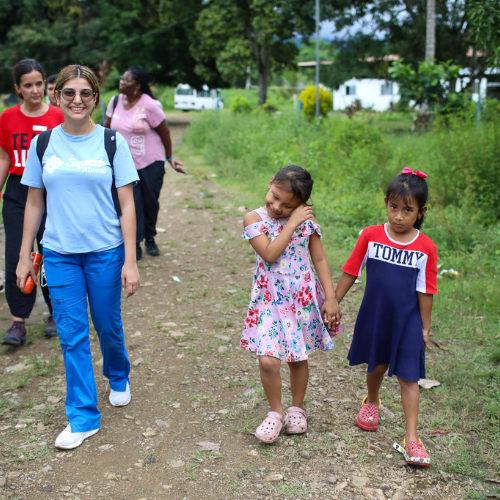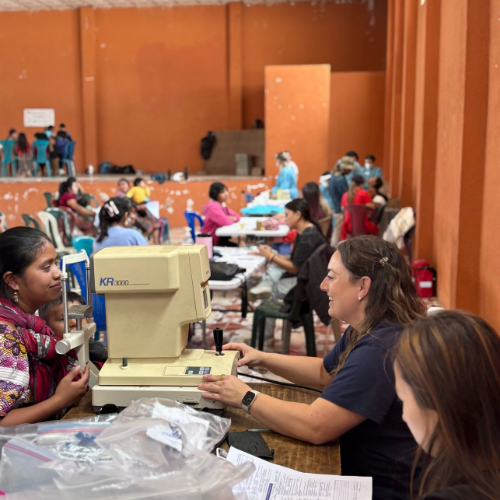Outside of Panama City, where access to healthcare can often mean traveling for hours on unpaved roads, I’ve witnessed firsthand how social determinants can shape health outcomes for community members in partner communities. As the Medical Manager for Global Brigades Panama, and as part of my own interest, I’d like to understand the multifaceted factors that influence health beyond clinic walls.
The Reality of Social Determinants in Practice
Social determinants of health can significantly affect medical care provided in hard-to-reach areas. Working in Panama's rural communities has shown me that effective healthcare goes beyond just diagnosis and treatment; it also requires physicians to inquire about and understand the social, economic, and environmental contexts in which their patients live.
Economic challenges come across as one of the most immediate barriers. The lack of economic resources can limit the medical services that people in rural areas sometimes require. This reality forces both patients and healthcare providers to make difficult decisions about which treatments to prioritize and which ones might have to be postponed.
Perhaps equally challenging is the education gap. Education and literacy levels often shape how patients understand medical instructions. This creates a chain reaction where even when there is access to healthcare, its effectiveness might decline if the patient cannot fully comprehend or if doctors do not take the time to explain thoughtfully the patient’s treatment and its importance.
Lack of employment or having precarious jobs can affect people's ability to access medical care and other health resources, as well as maintain a healthy lifestyle. This economic instability creates a vicious cycle where poor health impacts work capacity, while limited work opportunities prevent access to healthcare that could improve health outcomes.

Prevention vs. Treatment
The impact of social determinants becomes especially pronounced in preventive care. People with limited economic resources may face financial barriers to accessing preventive medical care services, such as screening tests and vaccines. This creates a healthcare system where treatment typically takes priority over prevention, leading to health outcomes that could have been avoided.
Rural communities may have limited access to medical care facilities, making it difficult for people to access prevention services. The result is a system where those who most need preventive care are least likely to receive it.
Creative strategies can be implemented to overcome access barriers, such as offering mobile clinics or collaborating with local organizations and community leaders. Mobile clinics and doctors who go to the communities have become lifelines for communities where the nearest health center might be hours away.
Empowering Communities Through Education
We have to emphasize community empowerment through education. I encourage patients to seek information about healthy habits, chronic diseases, and how to access preventive medical care services, which can help people make informed decisions about their health. Even small changes in their daily habits can create a big impact on their future.
Community engagement becomes a significant component of this strategy too. We encourage people to get involved in community activities such as Medical Brigades that go to their communities, or to participate in training programs such as the Community Health Workers. This approach transforms communities from passive recipients of healthcare to active participants in their own health improvement.

Looking Forward
Doctors working in rural areas need to be aware of these factors and adapt their approach to provide more effective and culturally sensitive medical care. For us, healthcare becomes not just about treating diseases, but about understanding and addressing the social conditions that create and continue to foster health disparities for future generations.
Through my work with Global Brigades Panama, I want to continue to demonstrate that when healthcare providers understand and address social determinants of health, we don't just treat patients, we transform communities.
Want to join me on Brigade?
Lead a Medical Brigade
Learn about Brigades in Panama
Join the movement!




.png)
